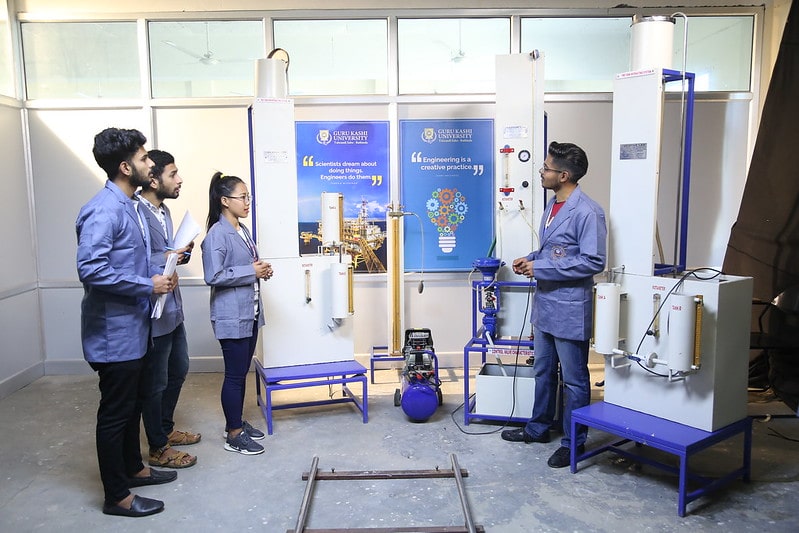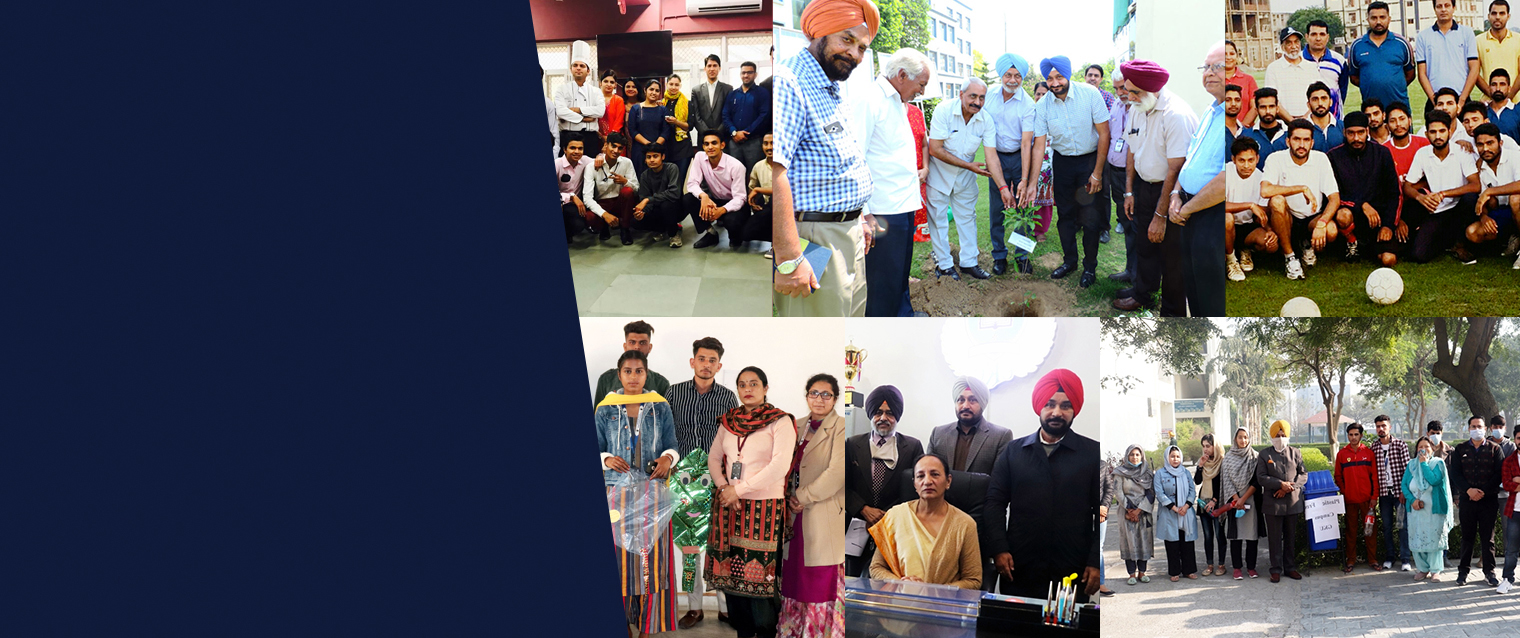
Diploma Petro Chemical & Refinery Engineering
Apply Now
Diploma Petro Chemical & Refinery Engineering
Apply NowDiploma in Petrochemical & Refinery Engineering is a specialized program that focuses on the manufacturing processes used in the petrochemical industry. Students learn about the different technologies and techniques of refining crude oil into valuable products like diesel, gasoline, and plastics. The program covers petrochemical engineering degree principles, process control, refinery operations, safety measures, and environmental concerns. Students also gain practical experience through hands-on training in laboratories and industrial visits. Upon completing the diploma, students can pursue careers in refineries, petrochemical plants, and other related industries. This diploma opens up opportunities for roles like refinery operator, process technician, and plant engineer, where graduates play a crucial role in ensuring petrochemical products' efficient and safe production. Due to the rapid growth, the petroleum industry has a lot of opportunities for engineering graduates. Guru Kashi University offers two top-notch undergraduate programs in the petroleum refining and petrochemical domain and a diploma-level program.
The Diploma in Petrochemical & Refinery Engineering course gives students an in-depth understanding of the processes involved in transforming crude oil into essential products such as plastics and gasoline. In this diploma program, students delve into the fundamentals of chemical engineering, gain insights into refinery operations, and learn about crucial safety measures. Additionally, they can acquire practical experience through laboratory work and industrial plant visits. Upon completing this graduate diploma, they are prepared to pursue careers as operators or technicians within petrochemical refineries and plants. They are vital in ensuring engineering petrochemical products' safe and efficient production.
7K+ Students
100+ Courses
25+ Countries
Here is the petrochemical engineering eligibility:

Guru Kashi University has established admission cell to bridge the gap between the students and the academic courses. The cell consists of team of career counsellors who understand the student’s choice and area of interest and guide them to choose the right career which will help them to excel in future.
The admission cell contains the information regarding all the courses of diploma, graduate, and post graduate and doctoral programmes. Guru Kashi University is successfully running courses in all fields such as engineering, agriculture, technical, physical education, education, languages, journalism etc.
The Diploma in Petrochemical & Refinery Engineering curriculum is designed to provide students with a comprehensive understanding of the processes involved in refining crude oil into valuable products. The program covers fundamental chemical engineering concepts, process control, refinery operations, safety measures, and environmental considerations. Students gain practical experience through industrial visits and hands-on training in laboratories. The curriculum also includes a project component where students apply their knowledge to solve real-world problems in petrochemical engg. Elective courses allow students to specialize in specific areas of interest. The program aims to equip graduates with the skills and knowledge required for entry-level positions in the petrochemical and refinery industry, such as operator, process technician, and plant engineer.

Alumni Gather at
the Annual Meeting to
share stories and celebrate. The Events
Saw Over 800 Attendees.
A Master of Arts (M.A.) in Education degree from Guru Kashi University offers Many educational job options.
Here are some things you could do after you graduate:
You could become a teacher at colleges, schools, or other places. You'd help students learn various subjects.
With your education knowledge, you could be a principal or a department head. You'd make sure everything runs smoothly at colleges or schools.
You could create learning materials and plans for students. This means ensuring lessons are exciting and helpful for various learners.
You could advise colleges or schools on how to teach better. You might also help them make tests fair or plan lessons.
You could create learning materials and plans for students. This means ensuring lessons are exciting and helpful for various learners.
You could advise colleges or schools on how to teach better. You might also help them make tests fair or plan lessons.
If you like studying Education, you can do research. This means looking at how people learn and how to make teaching better. You might work at a research centre or university.
You could help teachers improve how they teach. You'd work on things like learning materials and making lesson plans.
Ans: To become a petroleum engineer, you typically need a bachelor's petroleum engineering or a related field, such as chemical engineering. Advanced positions may require a master's degree or Ph.D.
Ans: : No, you generally need at least a bachelor's degree in petroleum engineering or a related field to work as a petroleum engineer.
Ans: The minimum GPA required for admission to a petroleum engineering program varies by institution but is usually around 2.5 to 3.0 on a 4.0 scale.
Ans: A college degree in petroleum engineering or a related field is required to become a petroleum engineer.
Ans:Yes, petroleum engineers are often in high demand due to the global need for energy and fuel, though demand can fluctuate with the market conditions of the oil and gas industry.